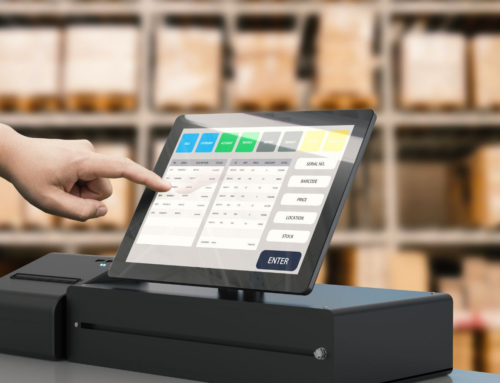BLOGS
Is PCI Compliance Legally Required?

We are very much living in a digital age, where financial transactions are overwhelmingly conducted online, and this means that the security of payment card information has never been more critical. Businesses of all sizes grapple with the need to protect customer data, not only to maintain trust and reputation but also to comply with various regulations.
One such standard is the Payment Card Industry Data Security Standard (PCI DSS), which sets the bar for protecting cardholder data. But this leads to a pressing question: Is PCI compliance legally required, or is it just an industry standard? In this blog, we’ll delve into the intricacies of PCI DSS, its implications for businesses, and the legalities surrounding it.
Key Lessons
- Grasp what PCI Compliance entails and why it’s a critical component of your business’s digital security measures
- Discover the distinctions between legal obligations and industry standards regarding PCI Compliance, and what that means for your business
- Uncover how adhering to—or ignoring—PCI Compliance can significantly affect your operations, reputation, and bottom line
What is PCI DSS?

Let’s start at the beginning. PCI DSS stands for Payment Card Industry Data Security Standard. Think of it as the guardian of cardholder data, a set of guidelines established to ensure that businesses process, store, and transmit credit card information securely.
Imagine you’re at a cafe, and you hand over your credit card to pay for that cup of coffee. You trust that your card details won’t end up in the wrong hands, right? That’s what PCI DSS is all about—making sure that trust isn’t misplaced.
Why Should You Care?
Even if you’re a small business owner, compliance isn’t just for the big players. If you accept card payments, PCI DSS applies to you. It’s like a digital lock on your customers’ data, protecting it from cyber thieves and fraudsters.
The Basics of PCI DSS
PCI DSS outlines a series of technical and operational standards that businesses should follow. These include:
- Secure network maintenance – Ensuring that your network is a fortress, with firewalls and encryption in place.
- Protecting cardholder data – Like keeping customer information in a safe, only it’s digital and much more complex.
- Vulnerability management – Regularly updating your systems, much like you’d maintain a car, to keep it running smoothly and securely.
- Access Control – Making sure only the right people have the keys to access sensitive data, minimizing the risk of internal breaches.
By adhering to these standards, you’re not just checking a compliance box; you’re building a bridge of trust with your customers, showing them that their data is safe in your hands.
Is PCI Compliance Legally Required?
Now that you’ve got a handle on what PCI DSS is, let’s tackle the big question: Is it a legal requirement, or is it just a strong recommendation? The answer isn’t as straightforward as a simple “yes” or “no.” It’s more like a “it depends,” but let’s unpack what that means for you and your business.
The Legal Landscape of PCI Compliance
PCI DSS itself is not a law; it’s a standard set by the Payment Card Industry Security Standards Council (PCI SSC), which is an entity formed by the major credit card companies. However, the twist comes in how various laws and regulations across countries and states integrate PCI DSS into their legal frameworks.
In the United States, for example, there’s no federal law that explicitly mandates PCI Compliance. However, several states have woven PCI DSS requirements into their state laws. For instance, Nevada has incorporated PCI DSS into its legal code, making compliance a legal requirement for businesses operating within the state.
PCI DSS Compliance as a Legal Requirement in Various States
While the United States lacks a federal mandate explicitly requiring PCI DSS compliance, the landscape changes when we zoom into the state level. Several states have taken it upon themselves to integrate PCI DSS requirements into their legal frameworks, making compliance not just a matter of best practice but a legal obligation for businesses operating within their jurisdictions.
Nevada: A Pioneer in Legalizing PCI DSS Compliance
Nevada stands out as a trailblazer in this area. By incorporating PCI DSS standards directly into its state laws, Nevada mandates that businesses handling payment card data must adhere to these standards. This move underscores the state’s commitment to protecting consumer data and sets a precedent for other states to follow.
Washington: Strengthening Data Breach Laws with PCI DSS
Washington state has also made strides by linking PCI DSS compliance to its data breach laws. In Washington, businesses that suffer a data breach but are found to be PCI DSS compliant may have a defense against certain types of legal action related to the breach. This integration highlights the importance of PCI DSS in not only safeguarding data but also in providing a legal cushion for compliant businesses.
Other States Following Suit
While Nevada and Washington are notable examples, they’re not alone. Other states have started to recognize the value of PCI DSS compliance in their legal frameworks, albeit to varying degrees. Some states use compliance with PCI DSS as a factor in determining the level of due diligence a business has exercised in protecting consumer data.
The Role of Contracts and Agreements
Even if you’re not in a state or country where PCI DSS is enshrined in law, there’s another layer to consider; contracts and agreements. When you sign up with a bank or a payment processor to accept card payments, you’re likely agreeing to adhere to PCI DSS as part of your contract. This means that while it might not be a law per se, it becomes a contractual obligation, which, if violated, can have serious legal and financial repercussions.
Consequences of Non-Compliance
Ignoring PCI DSS can be risky. If a data breach occurs and your business is found non-compliant, the penalties can be severe, ranging from hefty fines to losing the ability to process credit card payments, altogether. Plus, there’s the reputational damage, which can sometimes be an even tougher pill to swallow.
So, Is It Legally Required?
In essence, while PCI Compliance may not always be a direct legal requirement, the consequences of non-compliance, combined with the potential for it to be integrated into various legal frameworks, make it a critical standard to follow. Think of it as a form of insurance; while you hope you’ll never need it, you’ll be glad you have it if things go south.
Real-World Consequences of PCI DSS Non-Compliance

Understanding the importance of PCI DSS compliance becomes clearer when we look at real-world examples of companies that failed to adhere to these standards and the repercussions they faced. These case studies highlight the risks of non-compliance, including significant financial penalties, loss of customer trust, and long-term damage to brand reputation.
The Target Data Breach
In 2013, retail giant Target suffered a massive data breach, where hackers accessed the credit card information of approximately 40 million customers. The breach was traced back to compromised network credentials from a third-party vendor, highlighting the importance of PCI DSS’s requirement to secure and monitor all access to network resources and cardholder data. The fallout was substantial, with Target incurring costs exceeding $200 million, significantly damaging its reputation and trust with customers.
Marriott International Data Breach
Marriott International experienced a colossal data breach affecting up to 383 million guests, with attackers accessing sensitive information, including credit card details. While the breach originated in systems of the Starwood hotels group before Marriott acquired it, the incident highlights the need for thorough due diligence and PCI DSS compliance in mergers and acquisitions. Marriott faced a £99 million fine under GDPR, illustrating the severe consequences of data security lapses.
The Heartland Payment Systems Breach
Heartland Payment Systems, a payment processor, experienced one of the largest data breaches in history in 2008. Over 130 million credit card numbers were exposed due to malware planted on the company’s payment processing and system components. This incident underscored the necessity of regularly testing security systems and maintaining secure systems and applications, as mandated by PCI DSS. The breach led to a settlement of $110 million with Visa and MasterCard, besides other legal and remediation costs.
The TJX Companies Breach
In 2007, TJX Companies, the parent company of retailers like T.J. Maxx and Marshalls, disclosed a breach affecting more than 45 million credit and debit cards. Insufficient encryption and retention of cardholder data were among the key PCI DSS violations identified in this breach. This led to numerous lawsuits and a settlement that included a $9.75 million payment to states and a multi-million-dollar fund to cover customer losses.
British Airways Data Breach
In 2018, British Airways announced a significant data breach affecting around 380,000 credit card transactions. Hackers compromised the airline’s website and app, stealing customer data including names, addresses, email addresses, and sensitive payment card details. The breach raised questions about the airline’s PCI DSS compliance, particularly regarding data encryption and protection standards. British Airways faced a record fine of £183 million under GDPR, which, while not a PCI DSS fine, underscores the financial ramifications of failing to protect customer data.
The Sony PlayStation Network Breach
In 2011, Sony’s PlayStation Network was hacked, compromising the personal information of 77 million users, including payment card details. The breach highlighted several PCI DSS compliance shortcomings, such as inadequate protection of cardholder data and insufficient encryption. Sony faced significant financial losses, regulatory fines, and a severely tarnished brand image due to this incident.
Adhering to PCI DSS: Best Practices for Your Business
Ensuring compliance with the Payment Card Industry Data Security Standard (PCI DSS) is not just about checking boxes; it’s about fostering a culture of security that protects your customers and your business.
Adhering to PCI DSS can seem daunting, but with a structured approach, it becomes an integral part of your operational ethos. Here’s how you can ensure your business is not just compliant, but also secure.
Understand the Requirements
Firstly, it’s crucial to understand the 12 requirements of PCI DSS, which range from maintaining a secure network to regularly monitoring and testing networks. Each requirement is designed to protect cardholder data from different angles, addressing both technical and operational aspects of security.
Conduct a Risk Assessment
Identify where cardholder data is stored, processed, and transmitted in your environment. Understanding the flow of this and stored cardholder data helps pinpoint potential vulnerabilities and prioritize security efforts.
Implement Strong Access Control Measures
Limit access to cardholder data to only those individuals who need it to perform their job functions. Implement strong authentication measures to ensure that only authorized personnel can access sensitive information.
Maintain a Vulnerable Management Program
Regularly update and patch systems to protect against known vulnerabilities. Use antivirus software and other security tools to protect mobile devices against malware and ongoing threats.
Regularly Test Security Systems and Processes
Conduct regular testing of security systems and processes to ensure they are robust and effective. This includes penetration testing and vulnerability scans, which should be performed by qualified professionals.
Develop and Maintain Secure Systems and Applications
Ensure that systems and applications are developed following security best practices. This includes using secure coding techniques and conducting regular code reviews and security testing.
Train Your Staff
One of the most overlooked aspects of PCI DSS compliance is staff training. Employees should be aware of the importance of data security and understand the specific practices and behaviors required to maintain PCI DSS compliance.
Monitor and Test Networks Regularly
Continuous monitoring and regular testing of network security are vital. This helps in early detection of any unauthorized access attempts or suspicious activities that could indicate a security breach.
Create an Incident Response Plan
Having a well-defined incident response plan ensures that your business can respond effectively to security breaches. The plan should outline roles and responsibilities, procedures for containing and eradicating threats, and processes for recovering and restoring operations.
Document Policies and Procedures
Maintaining comprehensive documentation of your security policies and procedures not only supports PCI DSS compliance but also helps inculcate a culture of security within the organization. This documentation should be regularly reviewed and updated to reflect changes in the business environment or technology landscape.
By embracing these practices, your business can not only achieve PCI DSS compliance but also build a robust security framework that protects sensitive data and builds trust with your customers. Remember, compliance is not a one-time task but a continuous commitment to maintaining a secure environment for cardholder data.
The Importance of PCI DSS Compliance
Navigating the intricacies of PCI DSS compliance might seem like a formidable task, but it’s an essential component of your business’s security framework. Compliance isn’t just about adhering to a set of regulations—it’s about safeguarding your customers’ sensitive data, protecting your business from the potentially devastating impact of data breaches, and building a foundation of trust with your customers.
By understanding the requirements, implementing robust security measures, regularly monitoring and testing your systems, and fostering a culture of security awareness within your organization, you can ensure that your business not only meets the PCI DSS standards but also sets a benchmark in customer data protection.
Remember, in the digital age, data security is not just a responsibility—it’s a cornerstone of your business’s integrity and longevity.
PCI Compliance FAQs
Can a business be fined for not being PCI compliant?
Yes, businesses can face significant fines if they are found to be non-compliant with PCI DSS, especially if a data breach occurs. Fines can vary depending on the severity of non-compliance and the resulting impact.
How often is PCI DSS compliance required?
PCI DSS compliance is an ongoing process, not a one-time event. Businesses are expected to continuously adhere to the standards, with annual assessments required to verify compliance. Typically, processors require scans and surveys to be completed once per year, but recently processors started requiring at least a scan on a quarterly basis.
Does PCI DSS apply to all businesses that accept credit cards?
Yes, PCI DSS applies to any business, regardless of size or transaction volume, that accepts, processes, stores, or transmits credit card data.
What are the consequences of a data breach for a non-PCI compliant business?
Beyond the immediate financial penalties, non-compliant businesses face a loss of customer trust, potential legal actions, and long-term damage to their brand and reputation.
Are there different levels of PCI DSS compliance?
Yes, there are four levels of PCI DSS compliance, determined by the number of transactions a business processes annually. Each level has specific validation requirements.
Can using third-party payment processors exempt a business from PCI compliance?
While using third-party processors can reduce your PCI DSS scope, it doesn’t exempt a business from compliance. Businesses are still responsible for ensuring that their third-party providers adhere to PCI DSS standards.
What is the first step towards becoming PCI compliant?
The first step is to determine your PCI DSS level based on your transaction volume. Then, conduct a self-assessment or hire a Qualified Security Assessor (QSA) to identify what measures you need to implement or improve to achieve compliance.














